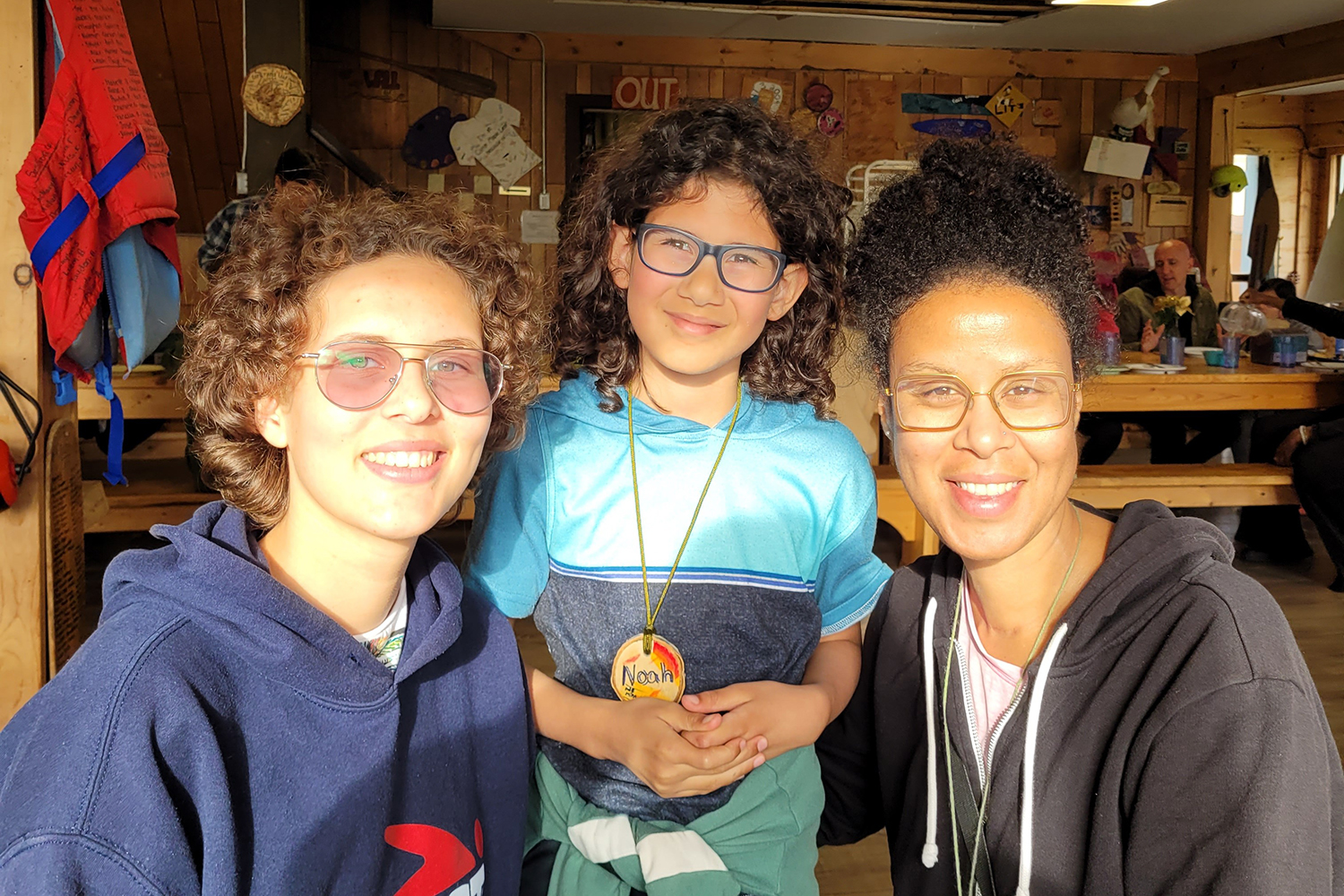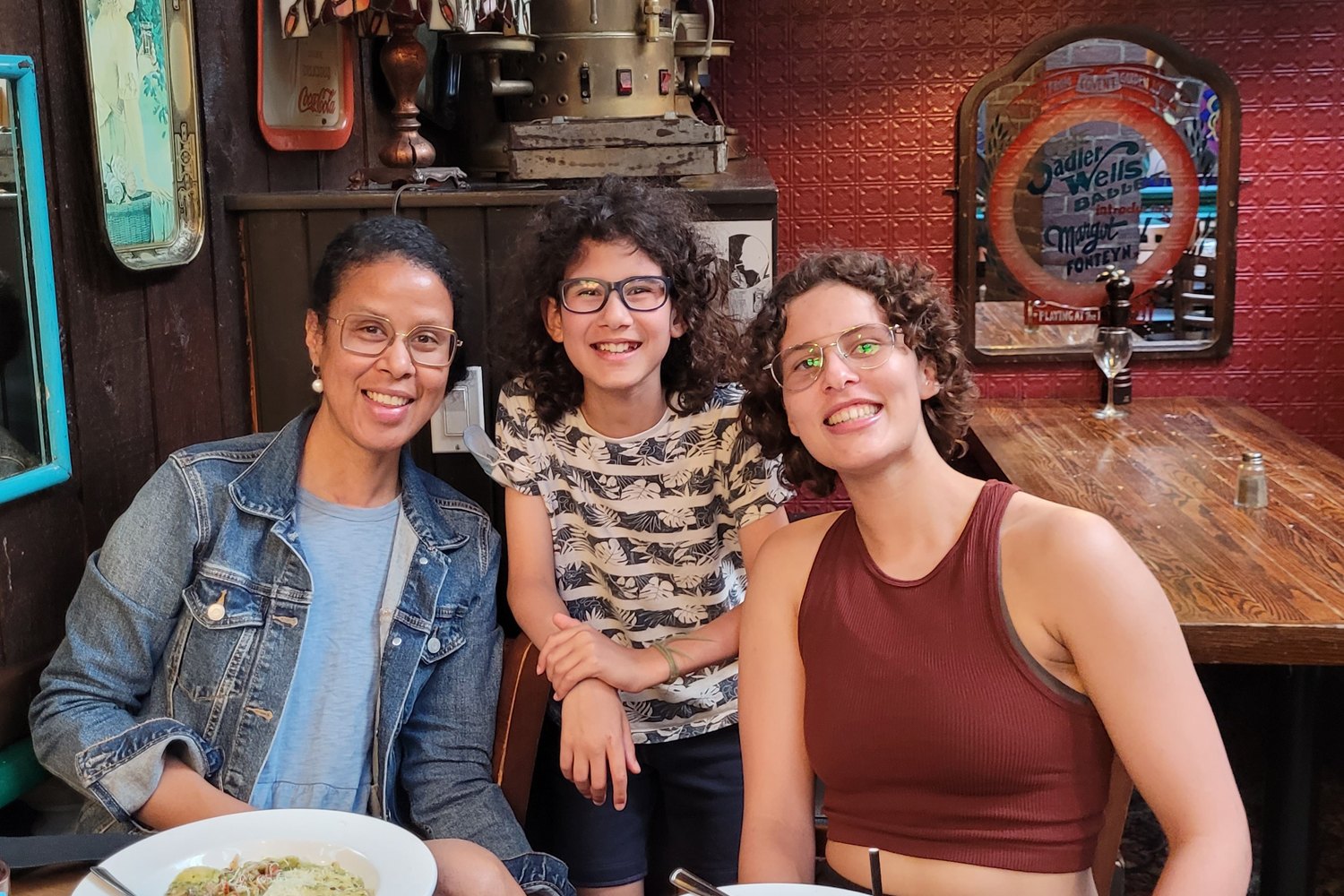AS A MOM JUST ENTERING HER 40s with two kids and a rewarding career as an elementary school educator, I never thought that cancer could become a member of our family. Yet that is what happened.
It was 2017. I had a 10-year-old and was still nursing my 2-year-old to sleep. I was told I had the good kind of breast cancer. It was stage 0 ductal carcinoma in situ or DCIS, meaning it was only in the milk duct and hadn’t spread anywhere else. Treatable and curable.
As a Canadian mom, this was the best news possible. Every fall in Canada we celebrate our national hero, Terry Fox, who had run over 3,000 miles using a prosthetic leg after his own leg was amputated to treat osteogenic sarcoma. Schools and children across the country honor the legacy of his Marathon of Hope by raising funds and participating in local Terry Fox walks. To be told I had stage 0 breast cancer meant I could reassure my family that my diagnosis of cancer was curable, unlike Terry Fox’s diagnosis, which ultimately forced him to end his dream to cross Canada early and was the cause of his death in 1981. This meant that I didn’t even have to worry about explaining cancer to a 2-year-old! Or so I thought.
Very rapidly, my story changed. After pushing for a bilateral mastectomy, I learned that not only was my breast cancer stage IV, but I also had thyroid cancer.
I remember the look in my daughter’s eyes when I had to tell her that my diagnosis was now like the story of Terry Fox. Mommy’s breast cancer was incurable.
And then, there was my youngest. How was I to include him in the conversation when he was a mere toddler?

Michelle and her children at their first ever family camp experience for families affected by a cancer diagnosis in May 2024.
I made it my mission to make cancer a part of our family. And I did this in two ways. First, by prioritizing my needs, much like how we are told to put the oxygen mask on ourselves first in case of an emergency on an aircraft. And second, by having frequent and age-appropriate conversations about my cancer with my kids.
For many people, this may seem unconventional. Cancer is hard enough, so why intentionally burden my kids with the diagnosis? To that I would answer, kids have an innate capacity for empathy. I knew they were watching me rush around to appointments. After a bilateral mastectomy, I could no longer nurse my son, nor lift him. He may not have had the language to ask questions, but he was having a different experience with me because of cancer, and that needed to be honored.
I made a commitment to let my kids know about upcoming appointments so they know that they don’t have to stress about me going to the hospital. Medical appointments are just part of what I do to take care of myself.
As the little one grew, I saw that he processed my cancer the way children respond to puddles after the rain: They jump right in. It’s the most important thing in that moment, but then they move on. And after the next downpour, they will be jumping in those puddles again.
Our cancer conversations have been like that. As his language and understanding expanded, so did his questions about my cancer. And once we jumped into that cancer puddle together, he was happy to move on and play like any other kid.
Another family topic is explaining what metastatic cancer means. And yes, it can mean that at some point my story may end in death, like Terry Fox. In the meantime, my doctors continue to provide me with treatment options and great care. Some treatments work. Some do not. But my children feel hopeful just knowing that there’s a team looking after me, so they don’t have to worry about something they cannot control.
Despite the challenges that cancer treatments, surgeries and scanxiety have brought to our lives, I’m proud to see how much my children’s capacity for empathy has grown simply by making cancer a part of the family.
My children are little carers. When they share stories of support they have provided for their own friends when a parent is diagnosed with cancer, I know that I made the right decision. Had I opted to bury my cancer experience to spare the kids any emotional strain, I would never have been able to witness their strength and capacity for empathy and support.
So, for any parent with children struggling to navigate a cancer diagnosis, I would tell them, just invite the cancer to be a part of the family. The kids will be all right.
Are there challenging issues you’d like us to investigate? Would you like to share your story about difficult choices or challenges you’ve faced? Email us at personalstories@aacr.org with “Challenges & Choices” in the subject line.
Cancer Today magazine is free to cancer patients, survivors and caregivers who live in the U.S. Subscribe here to receive four issues per year.





